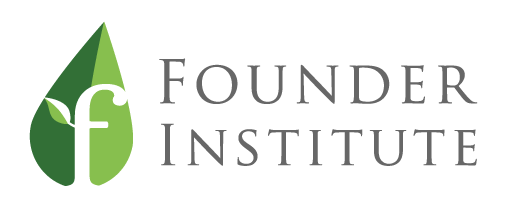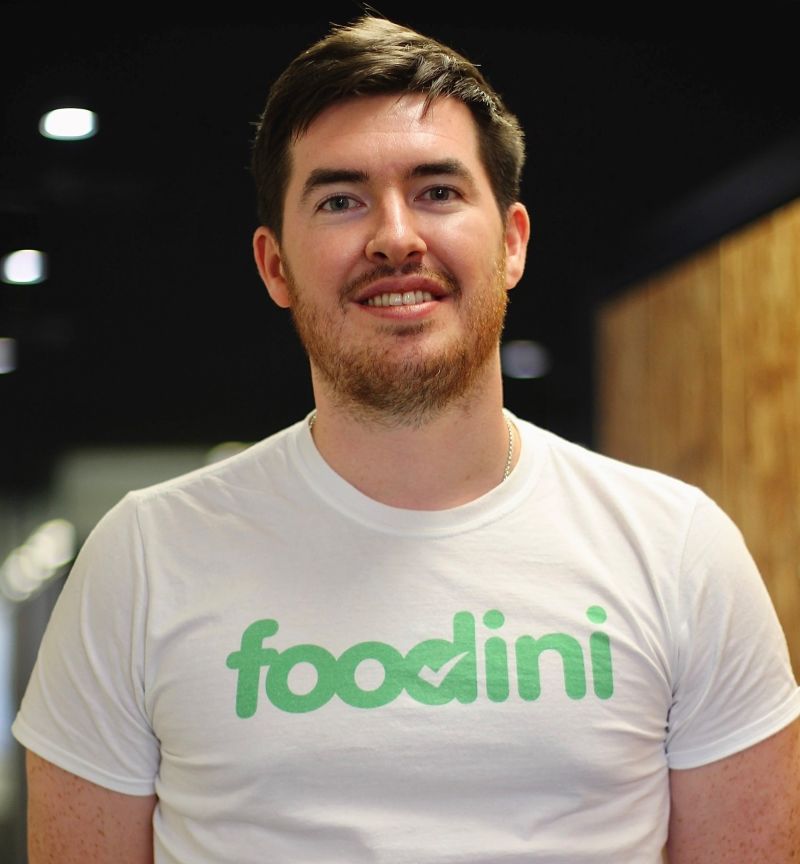Introducing Dylan McDonnell from Foodini
Q: Can you introduce yourself and your startup, Foodini?
A: I’m Dylan McDonnell, the co-founder and CEO of Foodini. Our platform is designed to assist the one in three individuals who have dietary needs and food allergies. Essentially, our focus is on helping these individuals manage their eating experiences, when dining out of home.
Q: What range of dietary requirements does Foodini cater to?
A: We currently cater to 55 different diets and allergens. This includes common ones like shellfish, nuts, eggs, and gluten, as well as specific diets like keto, paleo, low-FODMAP, and low-carb. We even accommodate preferences like avoiding coriander, garlic, or onion.
Q: What inspired the creation of Foodini?
A: My personal journey with celiac disease was a major driving force. I was diagnosed when I was 10, so living gluten-free has been part of my life for over 20 years. It was my experiences and challenges in dealing with this that inspired Foodini. Additionally, my co-founder Timo has a direct connection to dietary restrictions as well. He has two kids with food allergies and a vegetarian wife, so he’s experienced the complexities of managing diverse dietary needs in a family setting. This shared experience really sparked the idea for Foodini.
Founder Institute’s Role in Foodini’s Journey
Q: How did the Founder Institute play a role in the development of Foodini?
A: Founder Institute was pivotal right from the idea stage of Foodini. As a lawyer by profession with minimal startup experience, I knew I needed guidance from seasoned entrepreneurs and an expanded network. The Founder Institute provided both. Intriguingly, it’s also where I met Timo, who was one of the mentors in the program, thanks to his previous startup experience and success in scaling companies. Initially, Timo joined my board of advisors, later invested in our pre-seed round, and then became a full-time co-founder. So, in a significant way, the Founder Institute was instrumental in not just shaping Foodini but also in connecting me with my co-founder.
How a Founder Gets In
Q: Can you recall the application process for the Founder Institute?
A: Yes, I went through the traditional application process. It started with an online application form, followed by an interview. The competition was quite intense; I believe there were around a thousand applicants. Out of those, only 35 were selected to participate in the program. It was an intensive journey, and by the end of the three-month program, only about eight of us graduated. The process was not only rigorous but also a significant filter to identify those truly committed and capable of navigating the startup landscape.
Understanding Funding in the Founder Institute Program
Q: Is receiving funding a part of being admitted into the Founder Institute?
A: No, that wasn’t the case when I was part of it, and I don’t believe it’s the case now either. There was no capital incentive attached to being admitted into the program. However, it’s important to note that the Founder Institute is recognized as the world’s largest pre-seed accelerator program, as far as I understand. The focus is more on mentorship, guidance, and network building rather than immediate financial support.
A Typical Day in the Founder Institute Program
Q: Could you describe a typical day in the Founder Institute program?
A: The program demanded about 20 hours of commitment each week, with each week focusing on a different aspect of business development. Topics varied weekly, including brand development, legal considerations, and conducting consumer interviews, among others. Over the 12-week program, we delved into 12 key parts of building a business. A significant part of the program was validating the assumptions about our business. We were required to engage in substantial in-market work. This wasn’t just suggested; it was a necessary part of the curriculum. Each week, we had the opportunity to interact with industry experts, venture capitalists, and seasoned entrepreneurs. These professionals provided invaluable advice related to the weekly topic, and also offered feedback on our pitches and helped us navigate specific challenges we faced with our startups. The structure of the program really pushed us to critically assess and develop our business ideas in a practical, hands-on manner.
Standout Feature of the Founder Institute Program
Q: What aspect of the Founder Institute program particularly stood out to you?
A: In my opinion, the standout feature emphasized validating our ideas with the market. Often, people assume that their personal experience with a problem is universal, which isn’t always the case. One common mistake is not sufficiently validating the problem and potential solutions with the market. Many entrepreneurs aim for a ‘rocket ship’ solution from the start, when in reality, a simpler approach could effectively validate their concept with less capital and resources. The Founder Institute compelled me to actively engage with the market, talk to potential customers, and really hone in on the specific problem we were trying to solve. This process helped me understand what a minimal viable product (MVP) could look like for Foodini, which turned out to be much simpler and more focused than my initial concept. This approach of starting with a narrowed, more precise scope was incredibly valuable and a key learning from the program.
Reflecting on Areas for Improvement in the Founder Institute
Q: Were there any aspects of the Founder Institute that you think could be improved, or that disappointed you?
A: Honestly, I found the program very effective for what it aimed to do. It’s particularly beneficial for first-time founders, especially those who don’t already have a significant network in the startup community. The program is quite educational, which is great for those new to the startup world. However, for someone who might be launching a second company in the future, the benefits might not be as pronounced. That said, an area for potential improvement could be the introduction of a funding aspect. While the Founder Institute currently doesn’t focus on providing capital, having a fund to invest in startups could be a valuable addition. This would enhance the support provided to emerging entrepreneurs. But overall, the program delivered exactly what it promised, and I was quite satisfied with my experience. As a first-time founder and someone new to the startup scene in my city, it was an invaluable resource.
Correlation Between Founder Institute and Current Success
Q: Do you feel that completing the Founder Institute program contributed to your current success?
A: Undoubtedly, the program played a significant role in my current success. Following my participation, I refined and focused my original idea, making a slight but crucial pivot as a result of the insights gained. Additionally, I was able to build a strong board of advisors. A key milestone was finding my co-founder, Timo, through the program. Moreover, the connections I made led to investments from mentors and others involved in the program. In essence, the program didn’t just provide education and advice; it facilitated tangible, impactful connections and adjustments to my business approach. These elements collectively contributed to the success I’ve achieved with Foodini. Therefore, I would certainly attribute a part of my success to my experience and the connections made at the Founder Institute.
Preparing for Future Milestones Post-Founder Institute
Q: What are your upcoming milestones, and how has the Founder Institute prepared you for these challenges?
A: Currently, as a seed-stage company, our next big step is scaling into the U.S. market. We’re focused on significantly driving up our revenue, especially now that we’ve established case studies demonstrating the value of our product. The goal is to intensify our growth efforts – to ‘put some fuel under the fire,’ so to speak. Reflecting on the Founder Institute’s role in our current stage, it’s important to remember that it’s fundamentally a pre-seed accelerator, aimed at validating business ideas and preparing for initial capital raising. As we transition to the seed stage, the direct applicability of the program’s lessons might not be as pronounced as it was in our earlier days. It’s been over two years since we participated in the program, and we’ve evolved considerably since then. While the Founder Institute does offer other programs like the Funding Lab, which are tailored to later stages and focus on fundraising, I haven’t personally engaged with these yet. So, while the initial program was instrumental in our early development, its direct influence on our current goals is more nuanced, given the stage we’ve reached and the specific challenges we face now.
Ongoing Relationship with the Founder Institute Post-Acceleration
Q: How has your relationship with the Founder Institute evolved since completing the accelerator program?
A: My relationship with the Founder Institute has not only continued but has grown stronger post-accelerator. I’ve taken on the role of a mentor for the program, which speaks to the depth of my ongoing connection with them. They’ve invited me to return as a mentor, and I’m actually preparing to present to the current cohort in a few weeks. This involvement is not just local; it extends internationally. Whenever I reach out for assistance or advice, the response from the Founder Institute is always eager, helpful, and supportive. This enduring and active engagement demonstrates a mutually beneficial and positive relationship. Being a mentor allows me to give back to the community that played a pivotal role in my journey, and staying connected with the institute provides continuous opportunities for learning and networking.
Advice for Prospective Accelerator Applicants
Q: Do you have any advice for individuals considering applying to Founder Institute or other accelerator programs?
A: For anyone applying to an accelerator program, especially first-time founders, authenticity is key. There’s no benefit in pretending to be something you’re not. There are many accelerator programs out there, each with its unique focus and strengths. The fit of the program depends largely on your current stage, experience, and the industry your idea falls into. My primary advice is to do thorough research to identify the accelerator that aligns best with your needs and goals.
This could be in terms of capital, educational resources, networking opportunities, or other specific support you require. Each program offers different benefits and focuses, so understanding what you need and what each program provides is crucial. It’s also important to recognize that the right accelerator can be immensely valuable, while the wrong one can be a significant time drain. Invest time in understanding what you truly need – whether it’s funding, learning, or connections – and choose an accelerator that matches these needs. Being authentic in your application and clear about what you hope to gain will increase your chances of finding a program that can genuinely help propel your idea forward.


